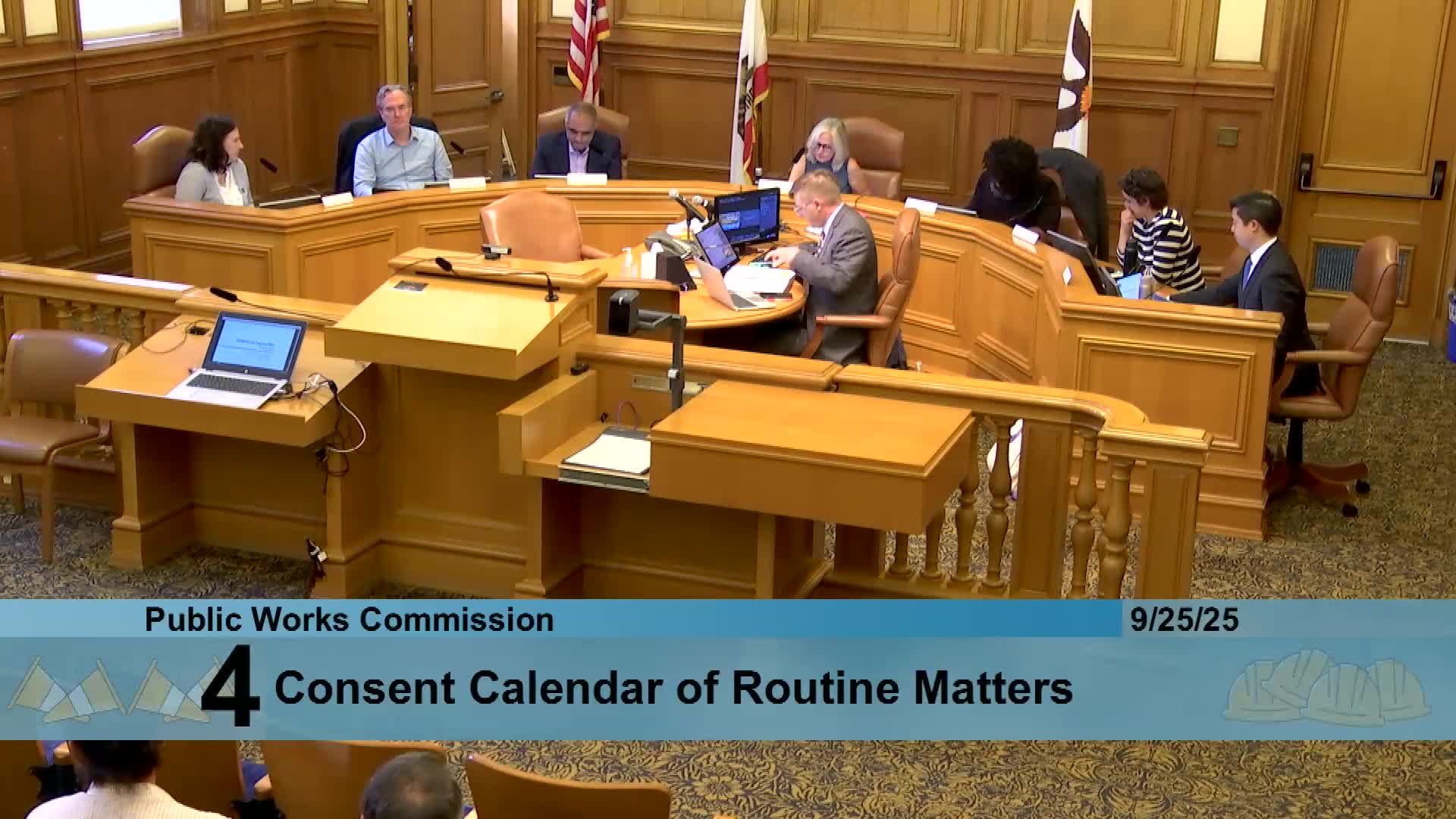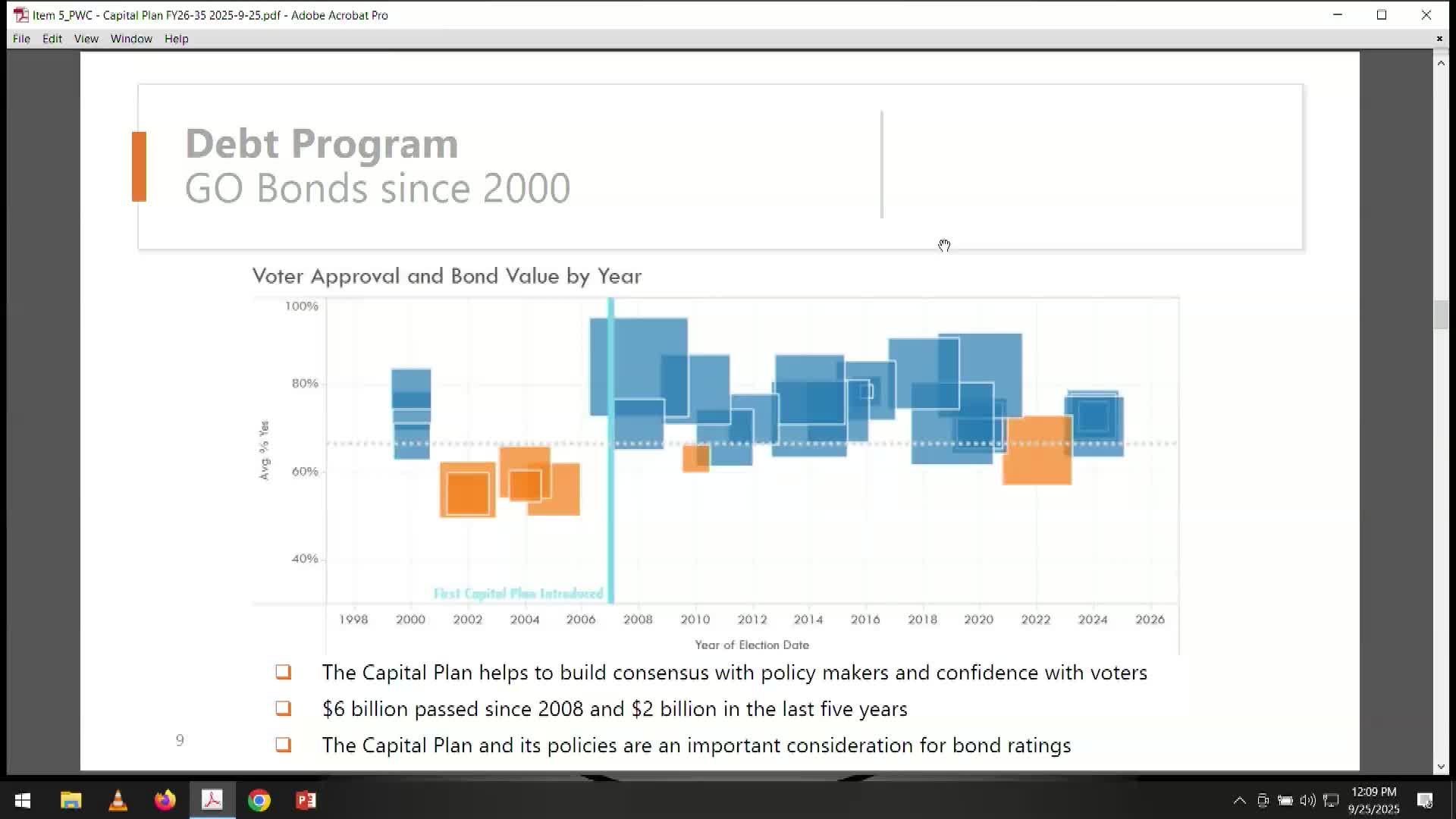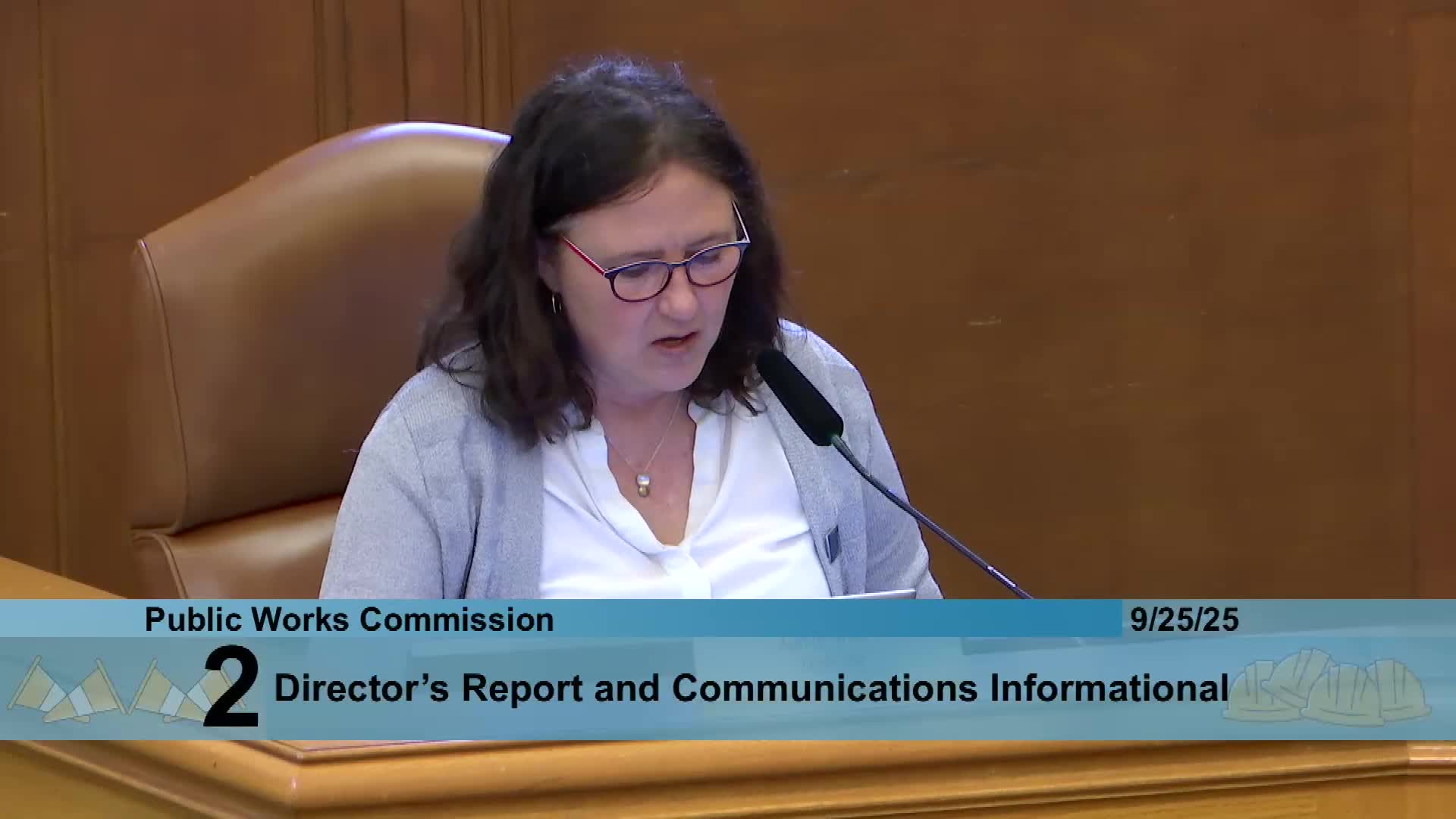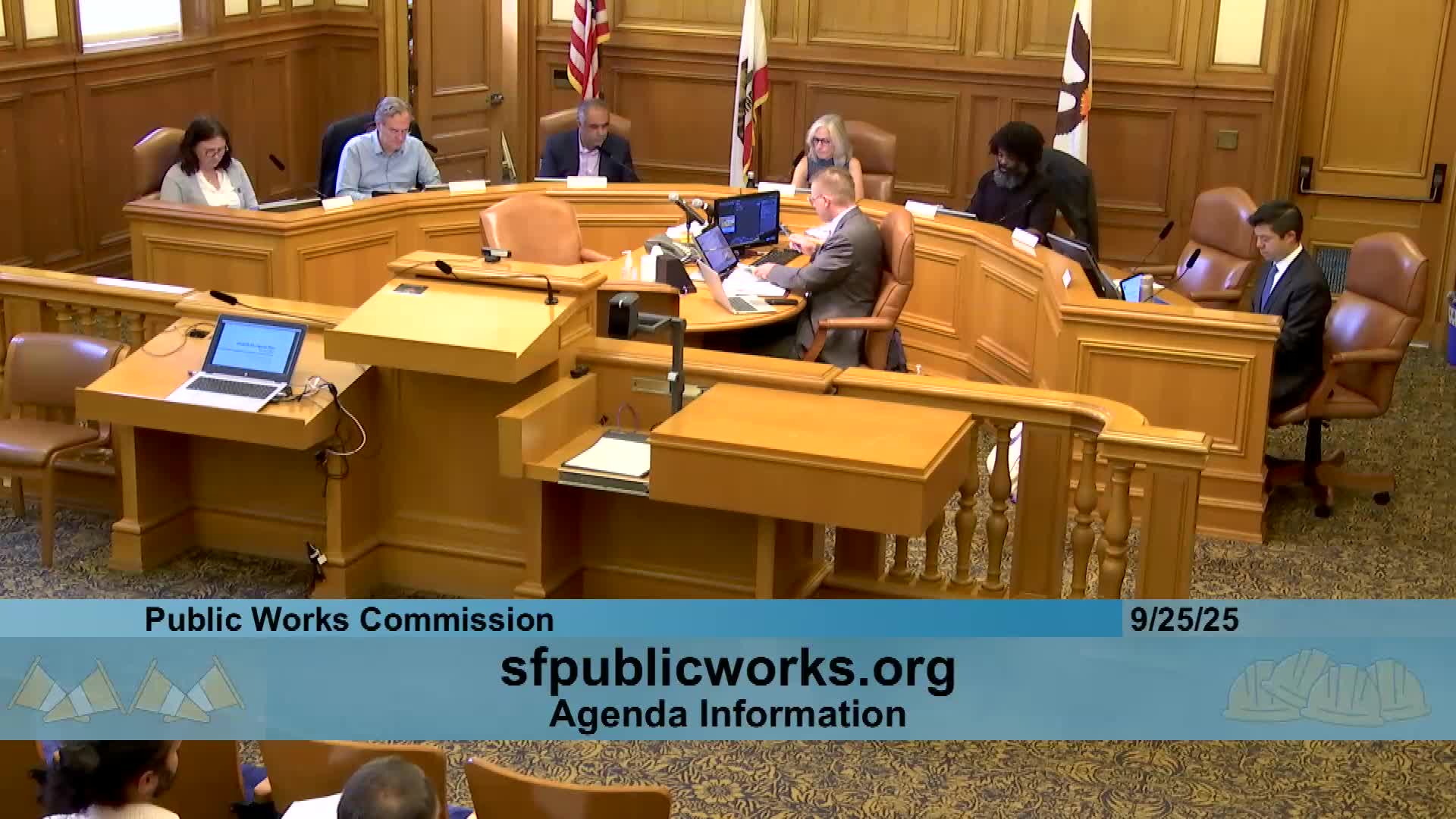Article not found
This article is no longer available. But don't worry—we've gathered other articles that discuss the same topic.

Public Works and Resilience Office outline $52 billion, 10-year capital plan and funding limits

Votes at a glance: Consent calendar adopted unanimously; annual report continued to Oct. 9

Public Works director reports on Treasure Island excavation, Sixth Street safety project and neighborhood programs

